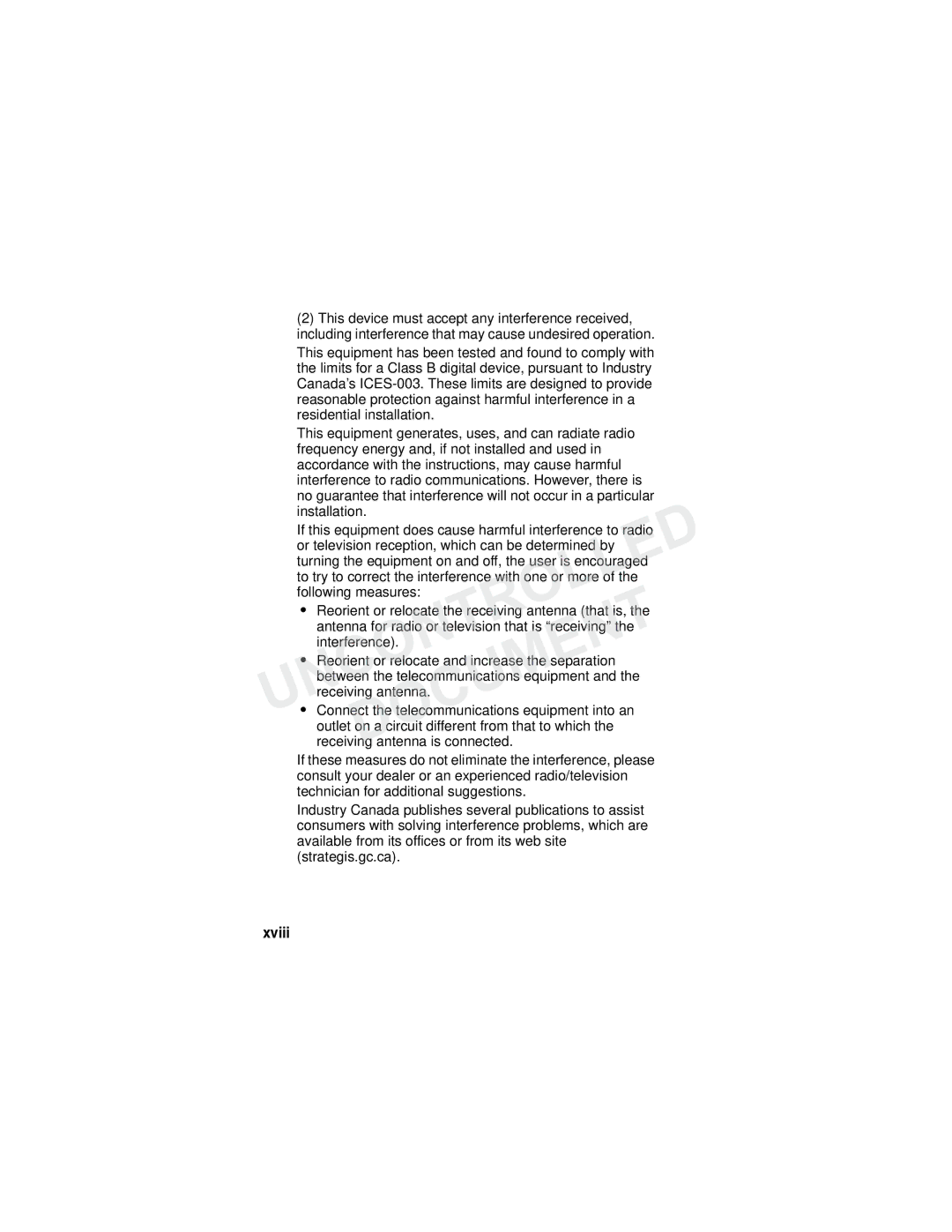(2)This device must accept any interference received, including interference that may cause undesired operation.
This equipment has been tested and found to comply with the limits for a Class B digital device, pursuant to Industry Canada’s
This equipment generates, uses, and can radiate radio frequency energy and, if not installed and used in accordance with the instructions, may cause harmful interference to radio communications. However, there is no guarantee that interference will not occur in a particular installation.
If this equipment does cause harmful interference to radio UNCONTROLLEDor television reception, which can be determined by
turning the equipment on and off, the user is encouraged to try to correct the interference with one or more of the following measures:
• Reorient or relocate the receiving antenna (that is, the
• Reorient or relocate and increase the separation between the telecommunications equipment and the receiving antenna.
• Connect the telecommunications equipment into an outlet on a circuit different from that to which the receiving antenna is connected.
antennaDOCUMENTfor radio or television that is “receiving” the interference).
If these measures do not eliminate the interference, please consult your dealer or an experienced radio/television technician for additional suggestions.
Industry Canada publishes several publications to assist consumers with solving interference problems, which are available from its offices or from its web site (strategis.gc.ca).
